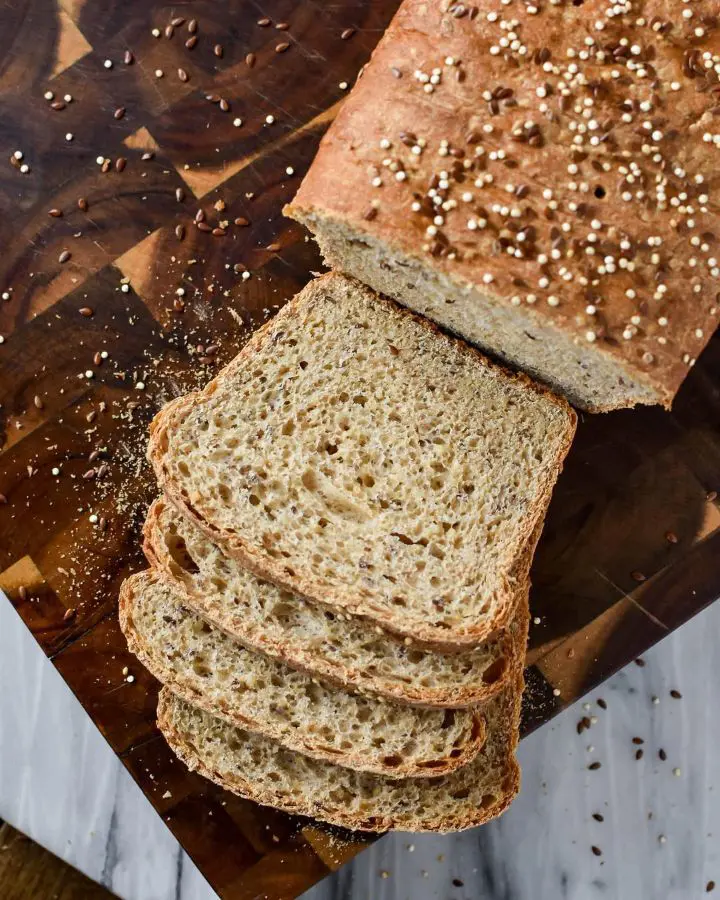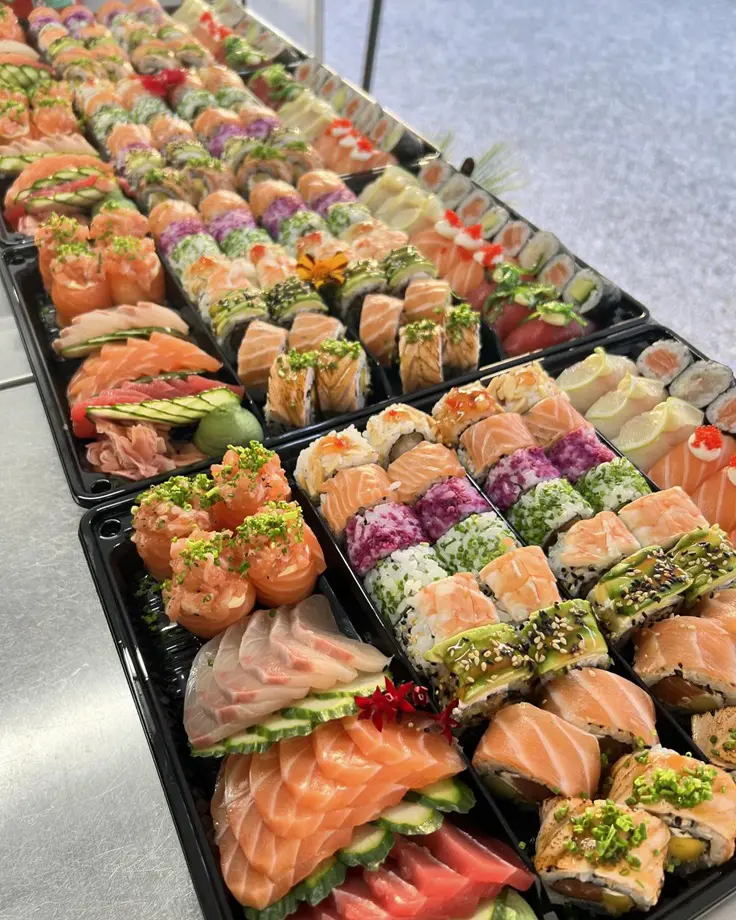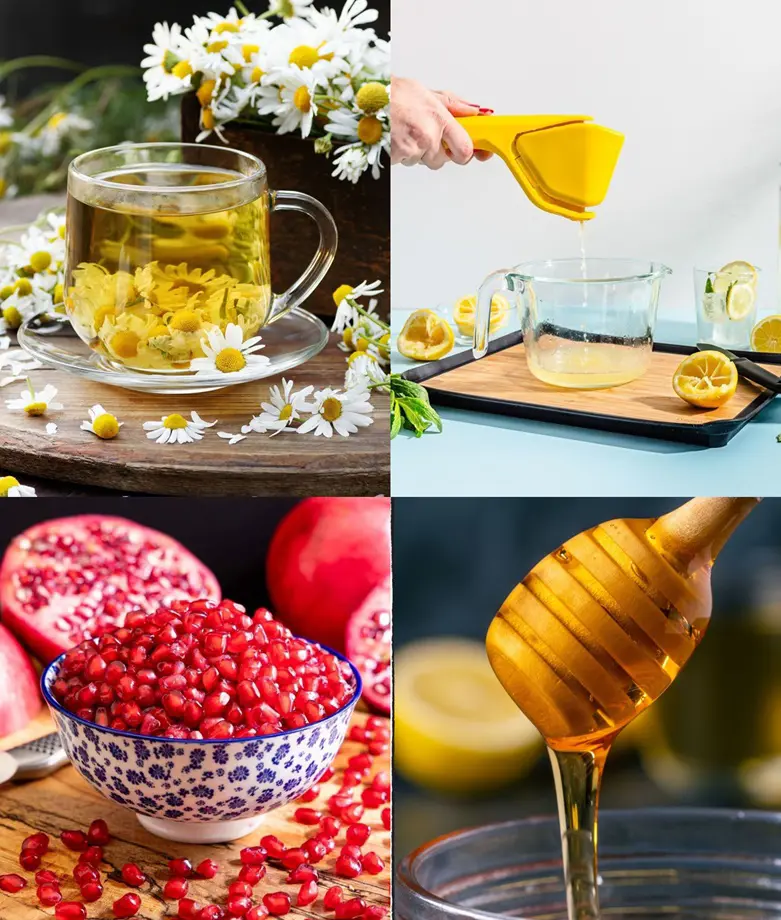20 Vitamin A Rich Foods To Include In Your Diet
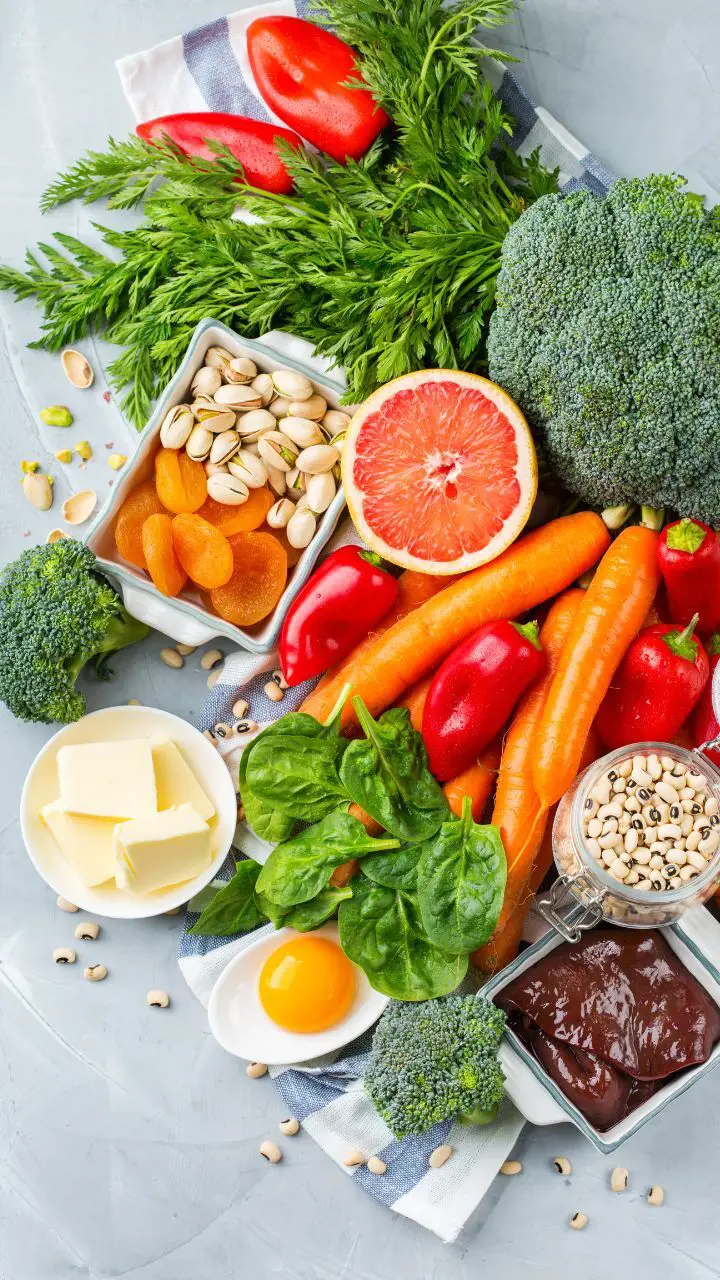
This post may contain affiliate links. If you make a purchase through links on our site, we may earn a commission.
Vitamin A, a fat-soluble vitamin, is important for your wellness in several ways. Food with vitamin A plays a vital part in supporting good vision, maintaining healthy skin and body growth, keeping immune function, and stimulating reproductive health.
Your body cannot create vitamin A from scratch, so it's a crucial micronutrient that is needed to get from the food. Here are 20 vitamin A rich foods that you can include in your diet to avoid deficiency.
1. Spinach
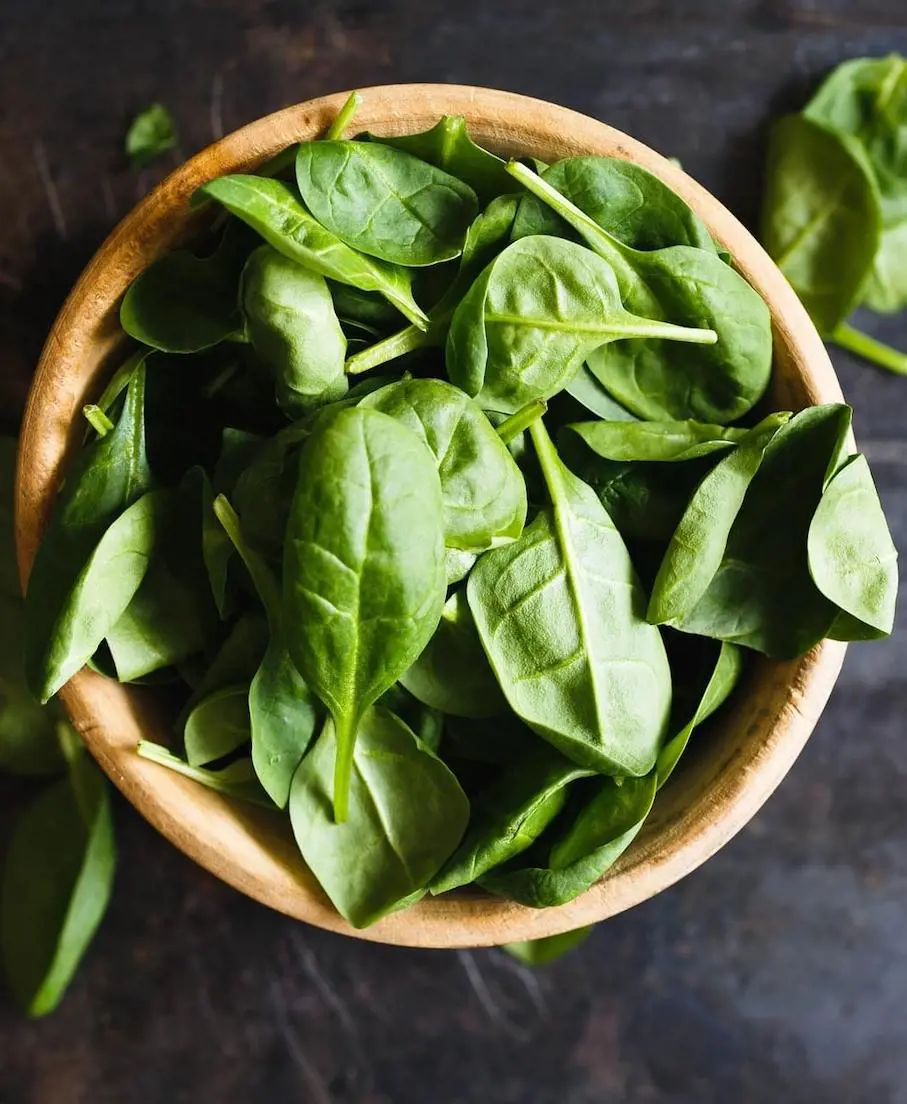
Spinach provides healthy nutrients like other leafy green vegetables. One cup (180 gram) of cooked spinach retain 943 mcg RAE, or supplies 105% of the daily value (DV). If you have half a cup of the boiled vegetable, you can obtain 573 mcg of vitamin A or 64% of the DV.
Besides, serving the same amount provides 17% of the DV for iron and 19% DV for magnesium. Also, spinach contains vitamins A, K1, & C and other essential minerals. It helps to decrease blood pressure, boost heart health, and keep eyes healthy.
2. Carrot
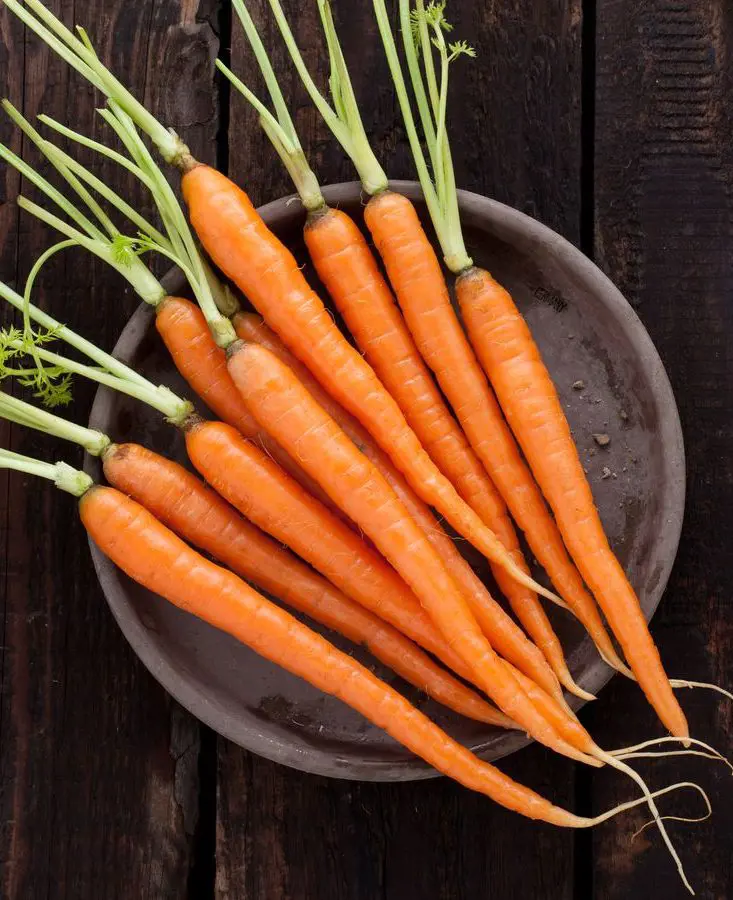
One cup (155 grams) of cooked carrots includes 1280 mcg RAE and 142% of the daily value (DV). In addition, merely serving half of the raw carrots supplies 459 mcg of Vitamin A or 51% of the DV. It's rich in vitamin K and packed with beta-carotene, potassium, and dietary fiber.
Carrots help to elevate healthy vision, balance your blood sugar, are great for weight management, reduce cancer risk, and support blood pressure regulations, immunity, and brain health.
3. Liver

Livers are food rich in vitamin A. 3.5 ounces (100g) of cooked beef liver includes 730 mcg of a trusted source of retinol that equates to 859% of the daily value. Serving the same amount of cooked lamb livers supplies 7,780 mcg or 864% of the DV, and liver sausage provides 8,310 mcg, or 923% of the DV, per Healthline.
It is also packed with zinc, iron, phosphorus, and copper, which assist bone health, boost the immune system, and help in metabolism. However, taking a high amount of this meat can cause mental health issues and damage the liver.
4. Broccoli
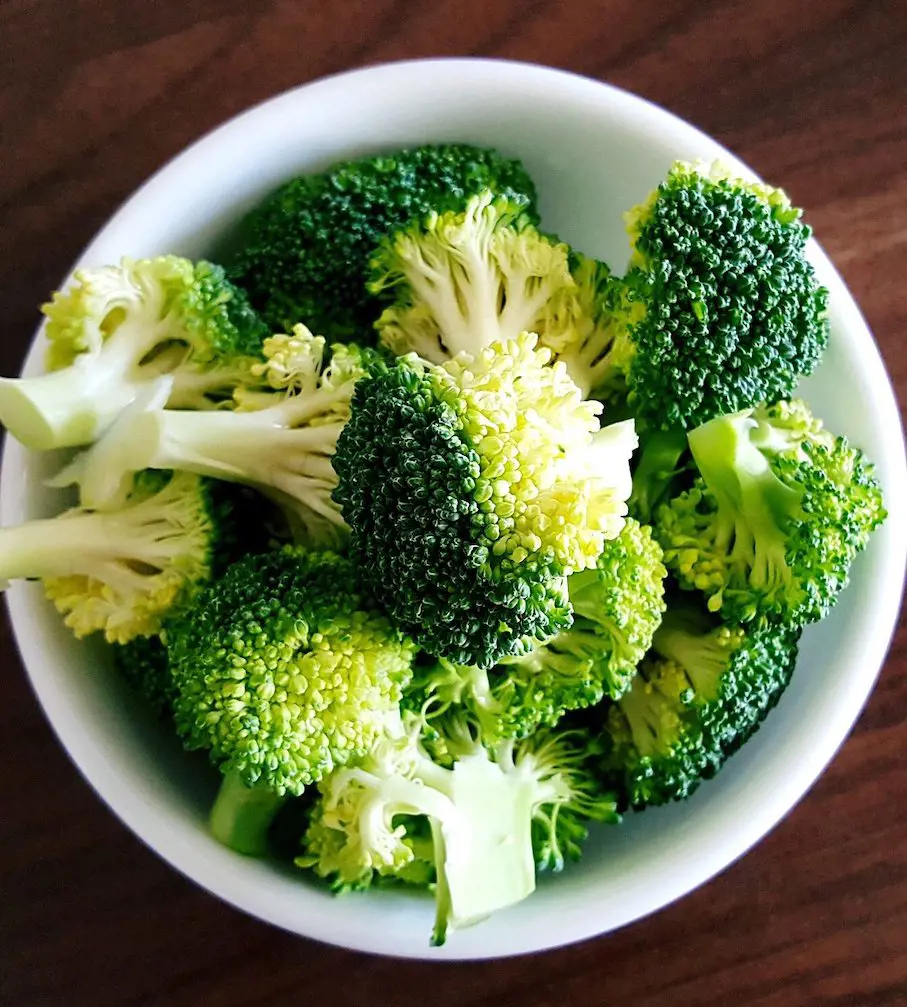
Broccoli is a high source of vitamin A, and serving just half a cup supplies 60 mcg of vitamin A or 7% of a daily value. If you have 100 grams or one cup of cooked broccoli, you can get 1.5 mg of vitamin A or 10% of DV. Besides this, it contains Vitamin C & K. It has anti-inflammatory properties and antioxidants.
The essential nutrients in broccoli aid blood clotting and bone metabolism, improve immune function, and lower cancer risk. Add this green vegetable to your salad, or enjoy it in soups to grab its nutritional value.
5. Grapefruit
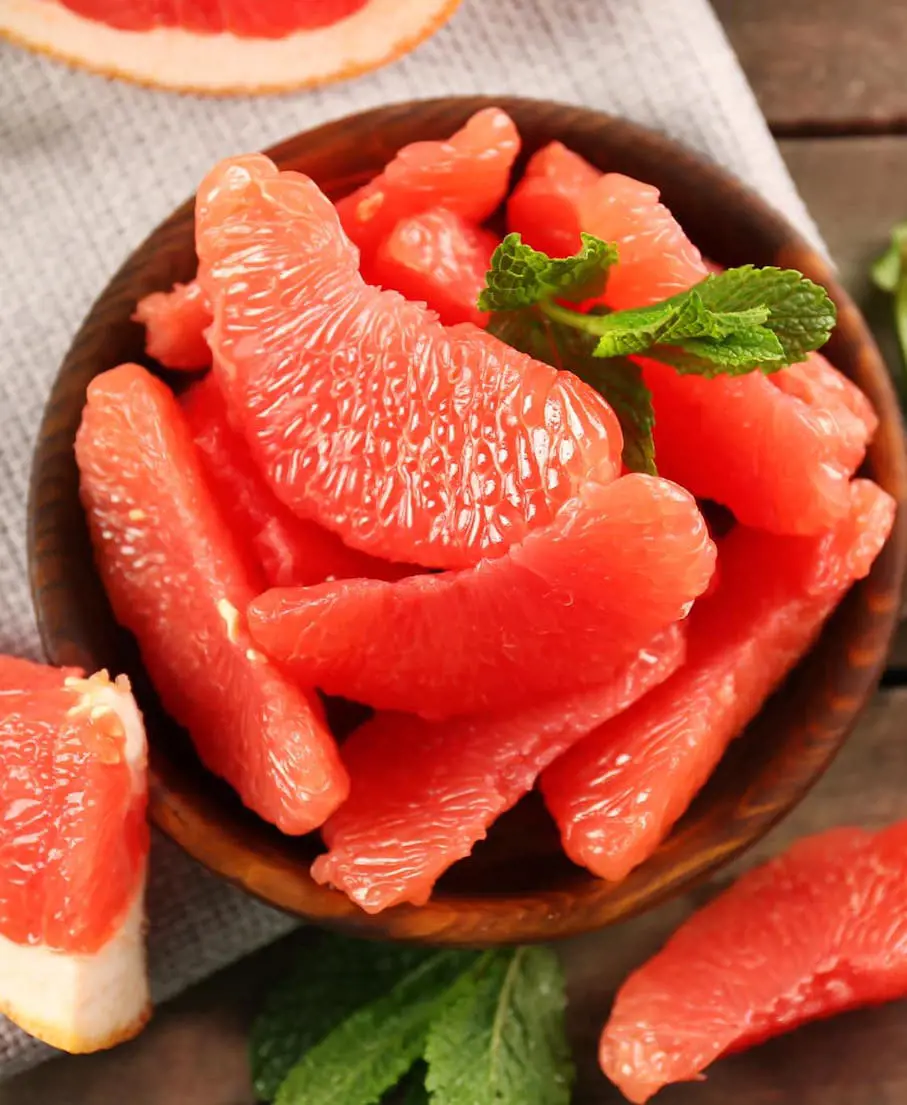
Grapefruit is rich in beta-carotene. Although other citrus fruits do not share this benefit, it has a high level of vitamin A. Serving only half a grapefruit or 154 gram supplies 89 mcg RAE, which equates to 10% of the daily value. In addition, having whole grapefruit provides over 50% of DV. Meanwhile, an orange only delivers about 4% of your requirement.
Eating grapefruit also provides other minerals required for your body, like potassium and magnesium. Its health benefits include improving heart health, lowering inflammation, easing high blood pressure, enhancing gut health, and lowering cholesterol levels.
6. Sweet Potatoes
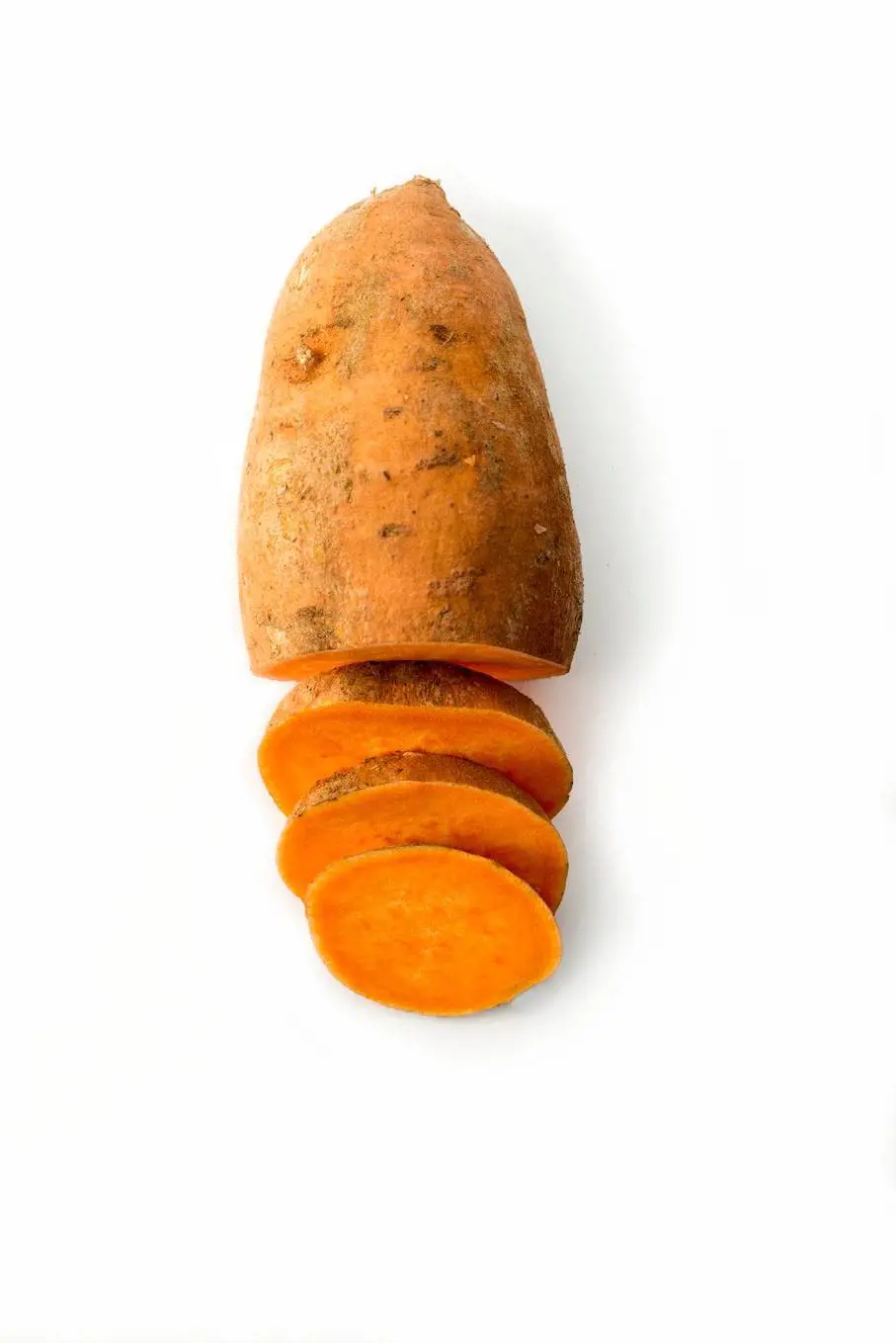
Sweet potato is a root vegetable, which means the vitamin A is in the form of beta-carotene. One cup (200 grams) of baked sweet potatoes holds 1,920 mcg of retinol activity, which equals 213% of the DV. In addition, one whole baked sweet potato supplies 1403 mcg RAE or 156% of the DV.
The compound included in these foods may defend against age-related macular degeneration. Besides, it also helps safeguard against cancers, keeps your eyes healthy, boosts your immune system, and is good for the reproductive system.
7. Pumpkin

Pumpkin is a highly nourishing orange vegetable, wealthy in beta-carotene and vitamin A. One cup (245 grams) of boiled pumpkin has 245% of RDI for vitamin A. Besides being loaded with vitamins A, C, B2, potassium, copper, and manganese, it contains low calories as it possesses 94% of water.
Pumpkin pie is a high source of vitamin A, as only one piece retains 488 mcg, equivalent to 54% of the DV. Consuming it enhances vision, controls common eye infections, lowers chronic disease risk, and boosts immunity.
8. Tomato Juice
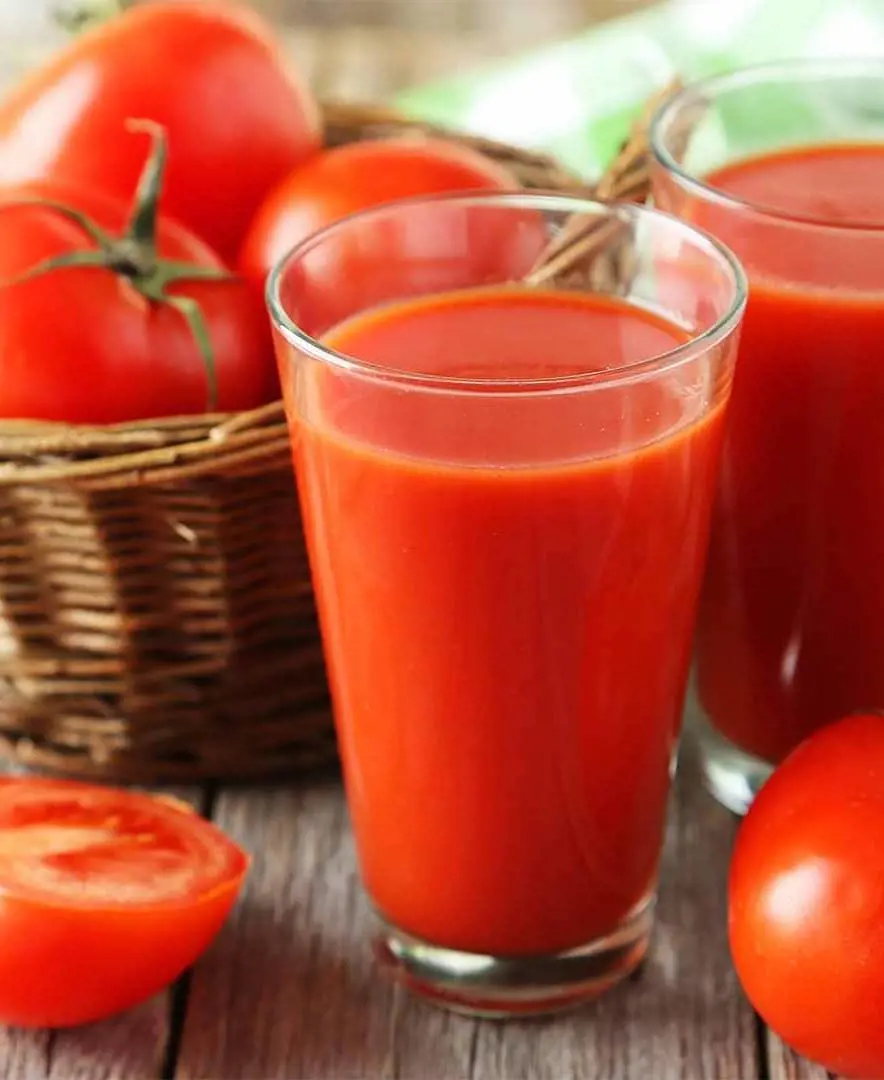
Juice made from fresh tomatoes is rich in vitamins A and C. Only three-quarter cups of tomato juice include 42 mcg of vitamin A, i.e., 5% of the daily value. Also, consuming one cup of 100% canned tomato juice supply 22% of the DV.
Like juice, tomatoes contain antioxidants like lycopene and beta carotene that are transformed into vitamins in our body. Tomato juice holds a high level of healthy nutrients, so it may assist in reducing the risk of chronic disease, enhance heart disease risk factors, and safeguard against certain cancers.
9. Fish
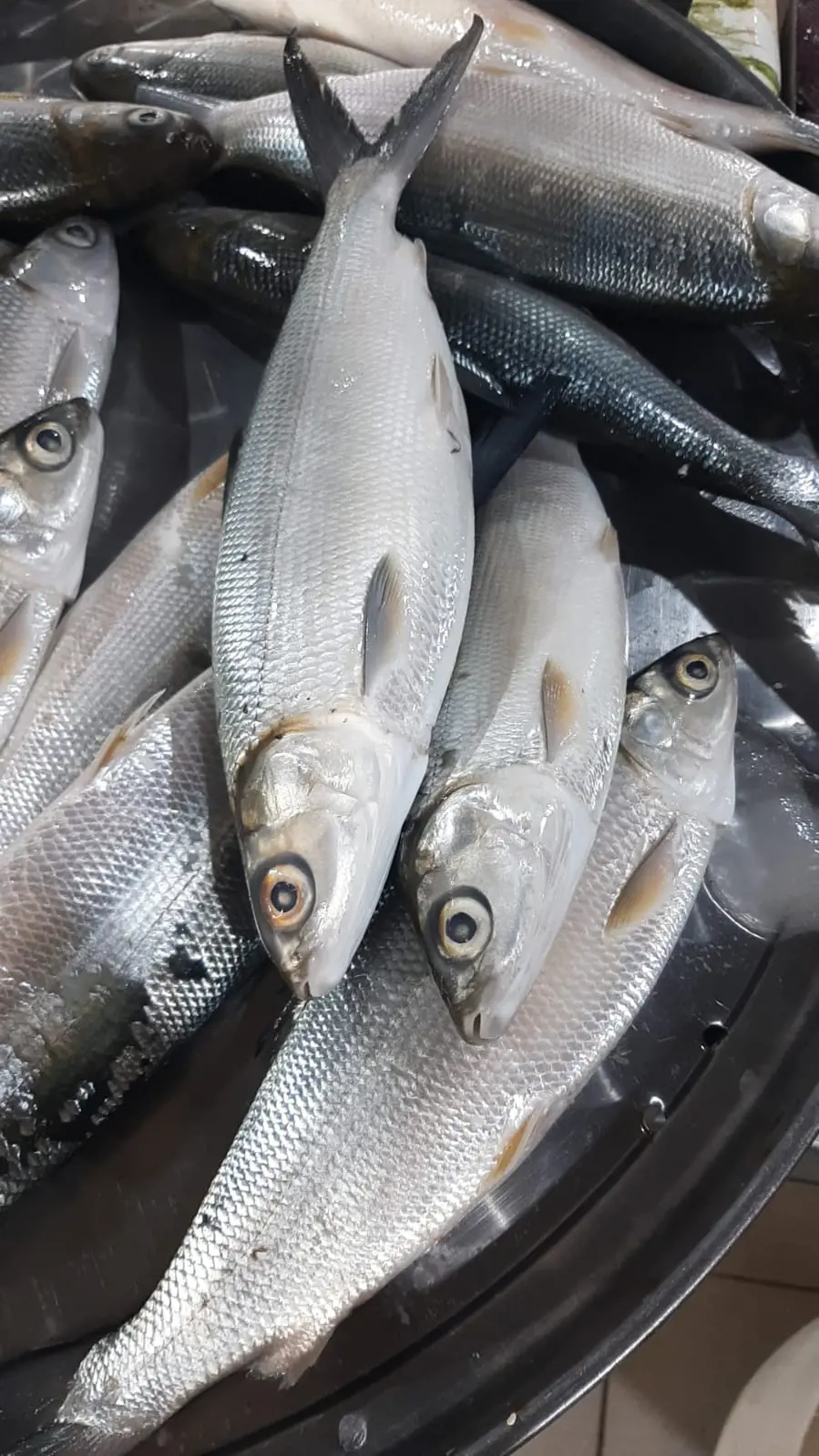
Cooked fish like salmon and bluefin tuna, while canned seafood like clams and oysters are rich in vitamin A. Only 3.5 oz (100 g) of boiled salmon includes 69 mcg of retinol, i.e., 8% of the daily value, and the same amount of bluefin tuna holds 757 mcg RAE, or 84% of the DV.
Serving a similar portion of canned clams delivers 101 mcg RAE, or 11% of the DV, and canned oysters supply 98 mcg RAE, or 11% of the DV. Also, fatty fish herring contain 219 mcg of retinol, or 24% of DV, if you consume 3 oz. Loaded with essential nutrients, fish may help decrease blood pressure and heart attack or stroke risk.
10. Cod Liver Oil
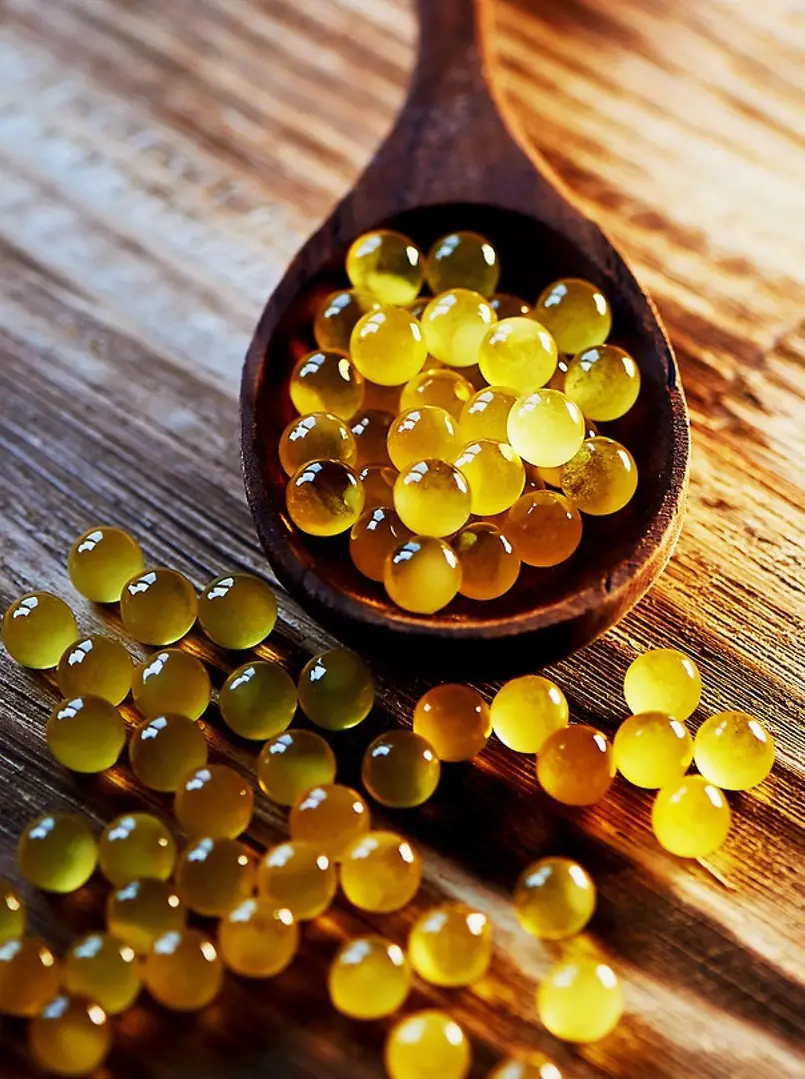
Just one tablespoon (14g) of cod liver oil supplies 4,080 mcg of vitamin A, which equates to 453% of the daily value, which means the fish liver is exceptionally nutritious. Besides, this oil is a good source of vitamin D, as only one tablespoon includes 170% of DV.
This oil and other fish oil are excellent sources of omega-3 fatty acids. As a result, it helps battle inflammation, improve heart health, strengthen immunity, and treat or control depression.
11. Eggs

Serving one medium hard-boiled egg or 50 grams holds 75 mcg of retinol or 8% of the DV, while two medium eggs or 100 grams contain 126 mcg or 16% of DV. Eggs are packed with vitamin D, B2, B12, float, biotin, and choline.
Being a great source of antioxidants, it helps to decrease the chance of specific eye diseases. If you don't have a cardiovascular condition, consuming one egg or egg yolk every day provides nutritional benefits to your body.
12. Milk
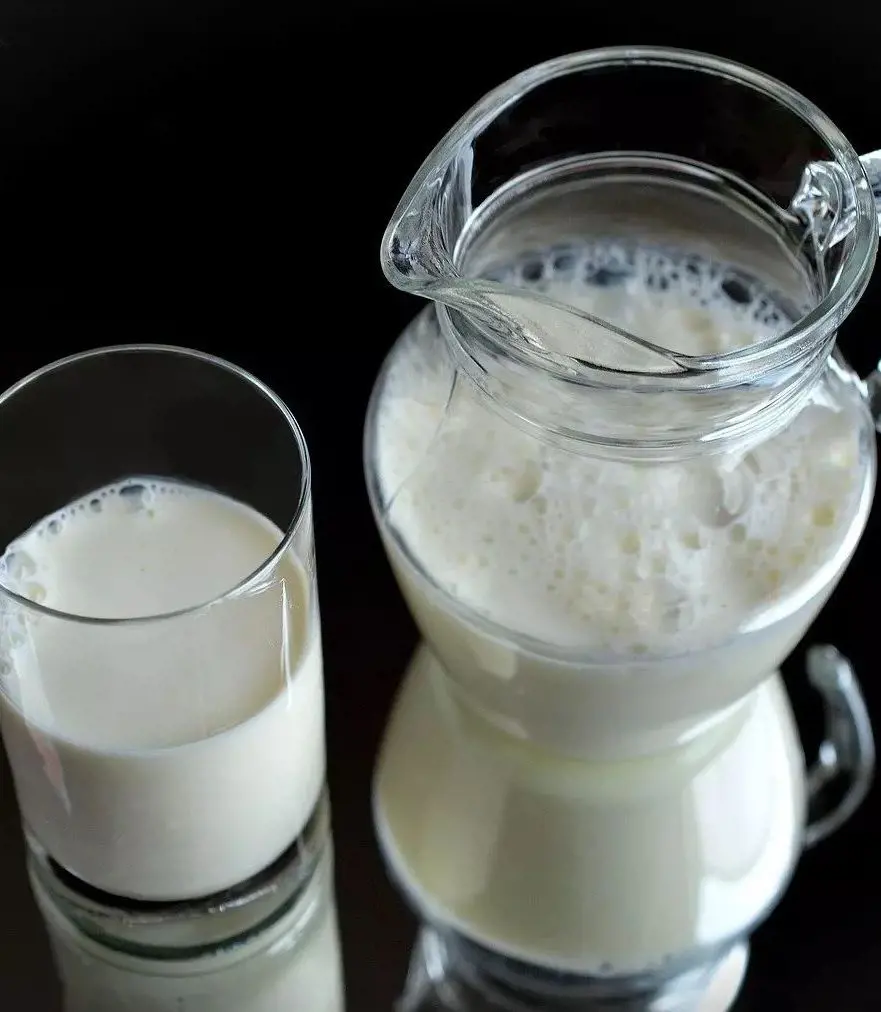
Milk provides a wholesome dose of essential vitamins and minerals, like vitamin A. Only one cup (237 ml) supplies 76 mcg RAE, equivalent to 8% of the daily value. Merely one cup (244g) of whole cow’s milk includes 24% of the RDI for vitamin D.
For this reason, drinking a glass of milk twice or thrice a day increases your vitamin A intake and other nutrients. It helps to strengthen the immune system, enhances bone and teeth health, benefits digestive health, and boosts heart health.
13. Mango
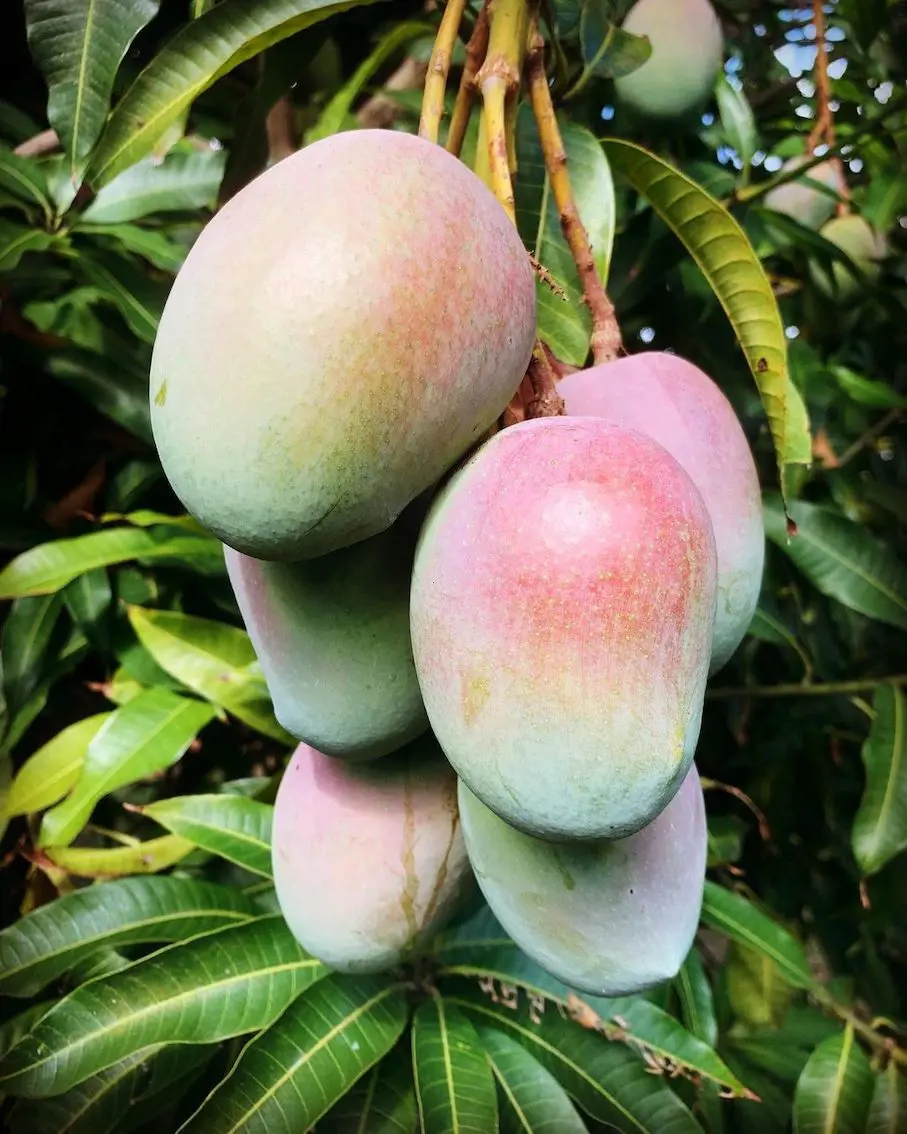
Mango is a delicious fruit that contains beneficial nutrients like vitamins A and C. Only one cup (165 grams) of mango provides 89 mcg of retinol, which equals 10% of the daily value. Consuming the whole raw mango supplies 112 mcg RAE or 12% of the DV.
This versatile fruit mango is rich in dietary fiber and antioxidants. It may guard against some diseases, lower blood sugar, aid heart health, stimulate the immune system, enhance skin health, ease constipation, and help eye health.
14. Red Bell Pepper
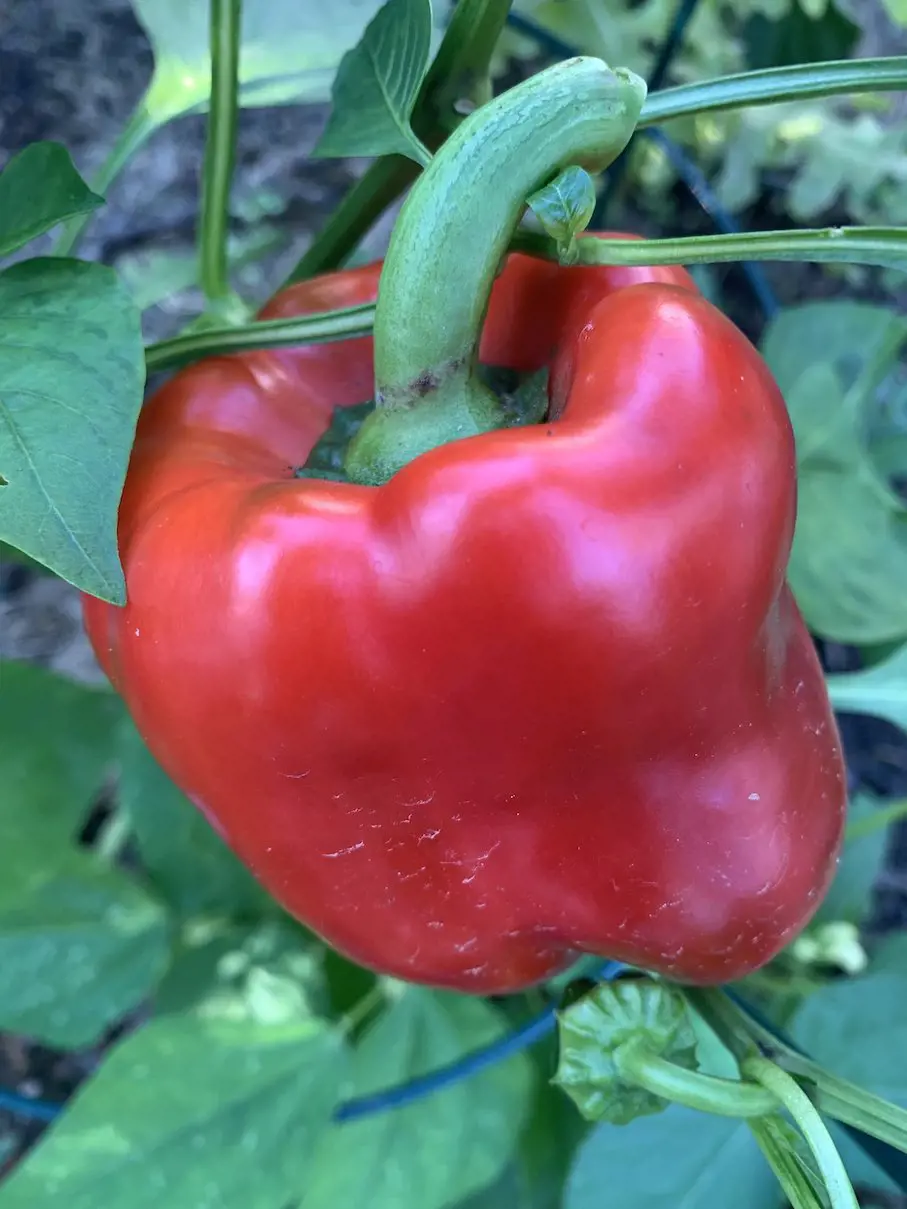
Red bell peppers, aka sweet peppers, are prosperous in beta-carotene, which converts into vitamin A. Only half of raw sweet peppers deliver 117 mcg RAE, or 13% of the DV, while one large, or 164 grams, supplies 257 mcg of vitamin A, or 29% of the DV.
This vegetable is a wonderful source of vitamin C, B6, antioxidants, and folate. It may decrease the risk of macular degeneration, safeguard against certain chronic diseases, delay age-related memory loss, and lower blood sugar.
15. Cheese
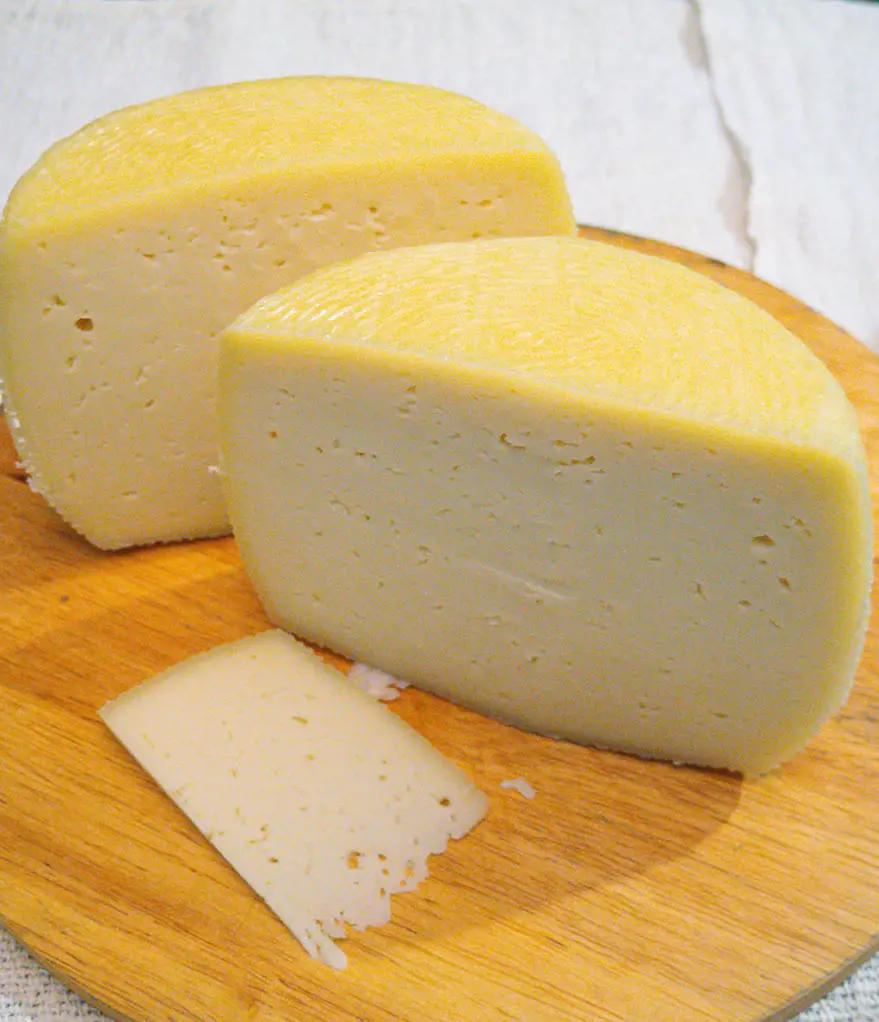
Some dairy products cheese, like goat cheese, Limburger cheese, cheddar cheese, camembert cheese, Roquefort cheese, and cream cheese, are rich in vitamin A.
One oz (28 gram) of these cheese include:
- Goat cheese: 80 mcg RAE or 9% of the daily value
- Limburger cheese: 96 mcg RAE, or 11 % of the DV
- Cheddar cheese: 74 mcg RAE or 8% of the DV
- Camembert cheese: 68 mcg RAE, or 8% of the DV
- Roquefort cheese: 83 mcg RAE, or 9% of the DV
- Cream cheese: 86 mcg RAE, or 10% of the DV
Besides, cheese is rich in other nutrients like calcium, which helps to improve bone and teeth health and support normal blood pressure.
16. Butter

Although butter contains high saturated fat, it is considered healthy if enjoyed in moderation, as it's packed with some essential vitamins, including vitamin A. One tablespoon or 14 grams of butter supplies 95 mcg of retinol, which equals 11% of the required daily intake (RDI).
The same serving of salted butter contains 102 calories, 0.12 grams of protein, and 11.52 grams of fat. Consuming a fair amount of butter can support bone development and lower obesity risk, diabetes, and heart issues.
17. Cantaloupe
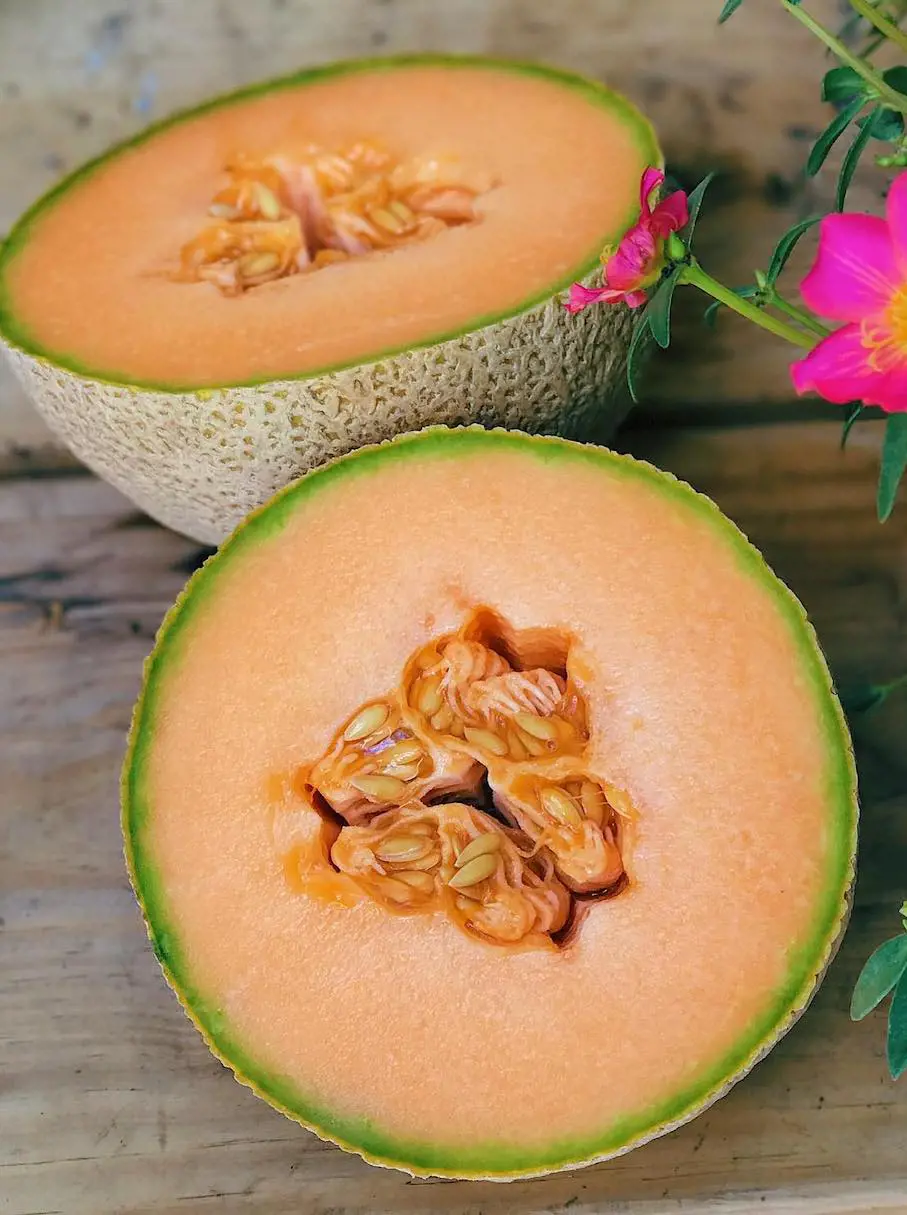
This juicy orange summer fruit cantaloupe is a healthy fruit that provides beneficial nutrients and vitamins to your body. Slightly half-cup of this fruit supplies 135 mcg of retinol, i.e., 15% of the daily requirement, while one cup (160 grams) provides 270 mcg of vitamin A, or 30% of the DV.
Summer melon is also prosperous in antioxidant vitamin C. Having this fruit may stimulate immune function, safeguard against several diseases, promote eye health, lower cancer risk, and enhance heart health.
18. Dried Apricots
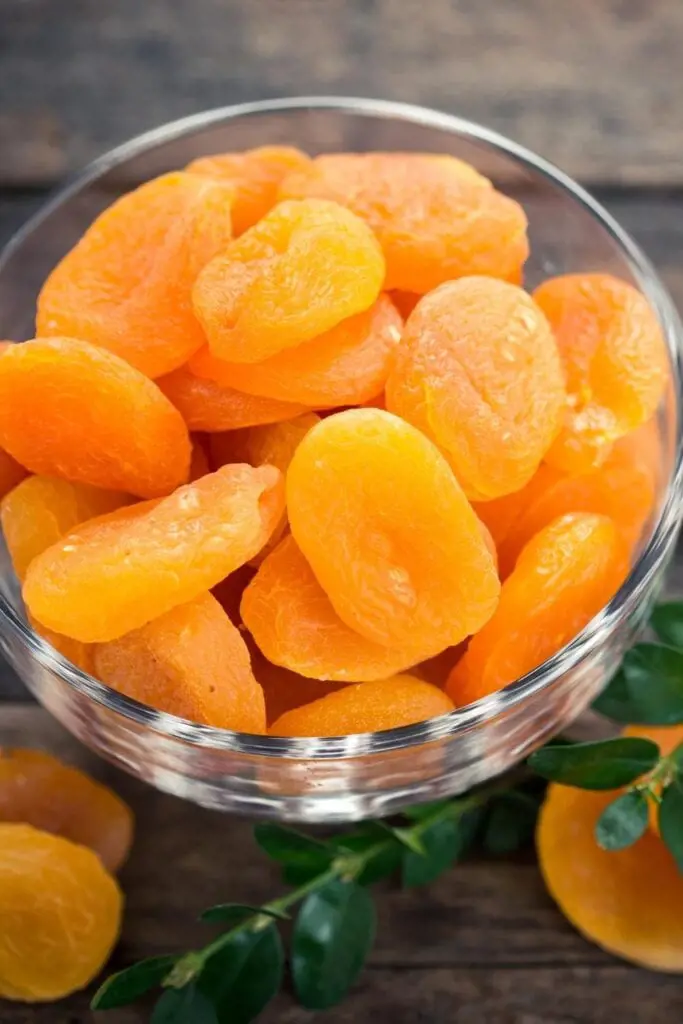
Like most vitamin A rich foods vegetables, apricots are a good source of various vitamins and minerals, including vitamin A. Ten dried apricot halves include 63 mcg of retinol, or 7% of the DV, while two apricots (70 grams) retain 67 mcg of vitamin A, i.e., 7% of the DV.
This nutritious fruit may boost eye health, stimulate skin health, facilitate gut health, and defend the liver. You can add fresh and dried apricots as they are easy to include in your favorite meal. However, take them in moderation as they have sugar and calories.
19. Green Peas
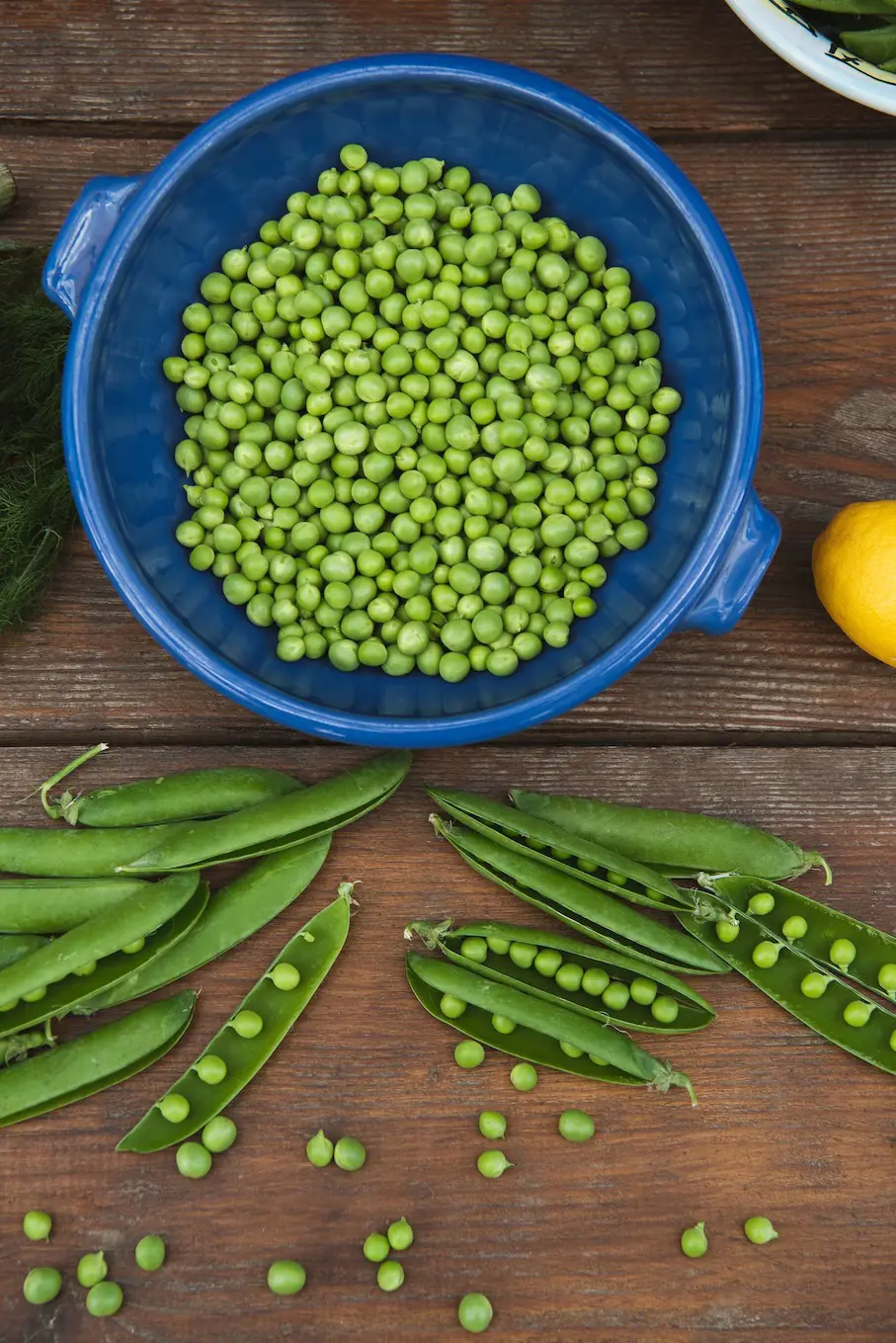
Serving 1/2 cup or 170 grams of peas supplies 34% of the required daily intake of vitamin A. Consuming the same amount includes 62 calories, carbs, protein, and vitamins K and C. This popular vegetable, green peas, is even packed with the proper amount of antioxidants and fiber.
Including this vegetable in your diet helps to safeguard against cancer, heart disease, diabetes, and arthritis and reduce inflammation. However, consuming daily can increase your weight.
20. Southern Pea
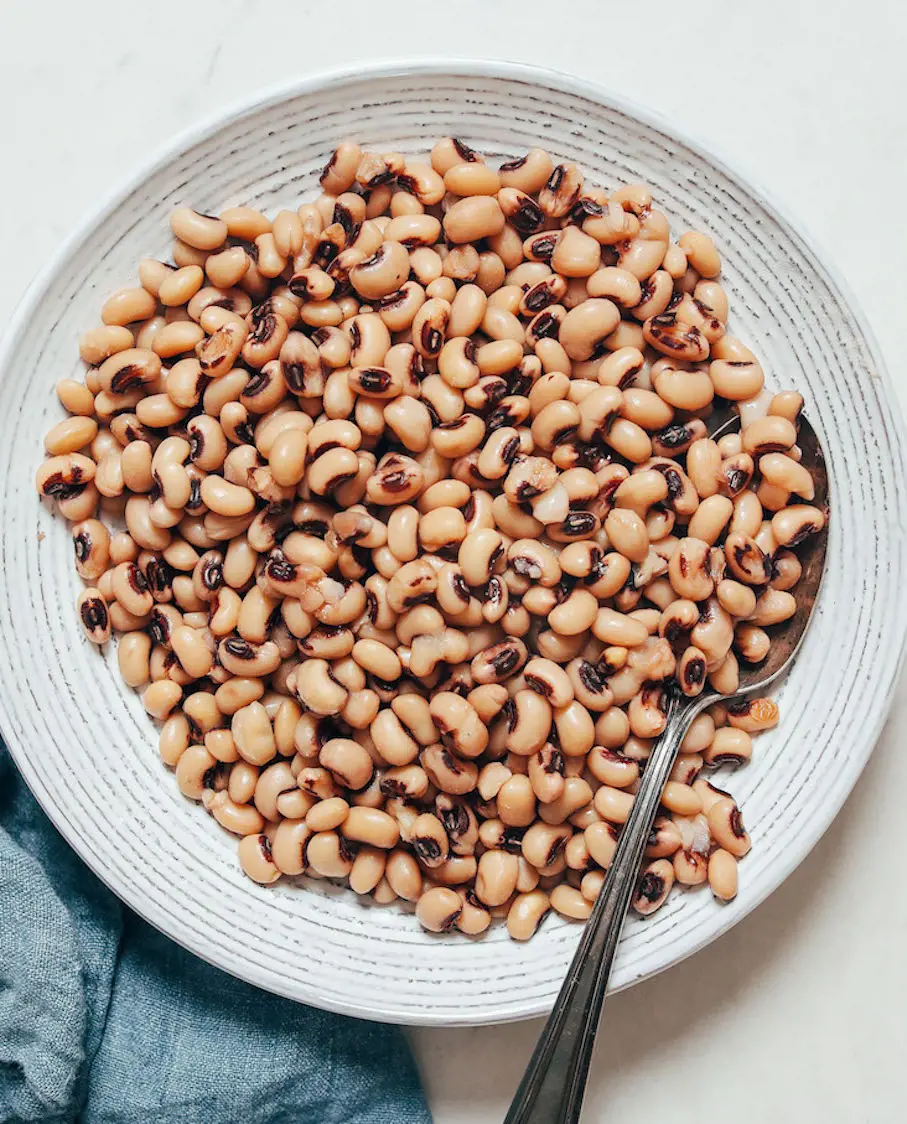
Southern peas, also known as goat peas or 'black-eyed peas, are excellent sources of vitamin A. One cup of boiled southern pea delivers 66 mcg of retinol or 7% of the DV. Beans are packed with nutrients like protein, iron, fiber, and folate.
Beans are good for heart health, lower heart disease risk, reduce high blood pressure, and decrease type 2 diabetes risks. So grab its nutritional benefit by using this versatile cereal in soups, salads, and stews.
Recent posts
Nutrition
Nutrition
Liquorice Root: Benefits And Uses
You can spell it liquorice or licorice; this herb or root has been in use for centuries in most medicinal applications, as a natural sweetener and to enhance flavors. Regarding its origins, it comes from the root of the "Glycyrrhiza galbre" plant and...
Nutrition
Is Ramen Healthy? Here's What Dietician Says
Ramen is a traditional dish from Japan that in the recent era has become a global phenomenon. This beloved and comforting soupy dish however has been questioned, when it comes to its nutrition. Best for those looking for a quick (instant), affo...
Nutrition
Is Wheat Bread Healthy? An Expert Picks
Wheat bread has been proudly celebrated as a dietary staple in countless homes for as long as people can remember. It has earned a reputation as a healthier alternative to white or any other processed bread, that no one can deny. Because of its evide...
Nutrition
Is Sausages Healthy? Nutrition And Health Benefits
Sausages are tasty in an addictive way, making them one of the most popular foods worldwide. You may have enjoyed this convenient food often, whether on a bun with mustard or grilled on a barbecue, the simple preparation methods are what makes its co...
Nutrition
Ice Cream Benefits: Nutrition, Potential Risks And Best Choices
Not gonna lie, ice cream is often taken as a guilty pleasure treat, a delightful treat that takes you to cloud nine but is frequently associated with negative health implications. Nonetheless, the happy news is when devoured mindfully, ice cream can ...
Nutrition
Is Sushi Healthy? Some Good and Bad Choices
Sushi is a wholesome meal and a beloved Japanese dish. The traditional sushi recipe is a simple combination of fresh fish, vegetables, and vinegared rice which is popular for its minimalistic preparation. As with any food, there are factors that dete...


